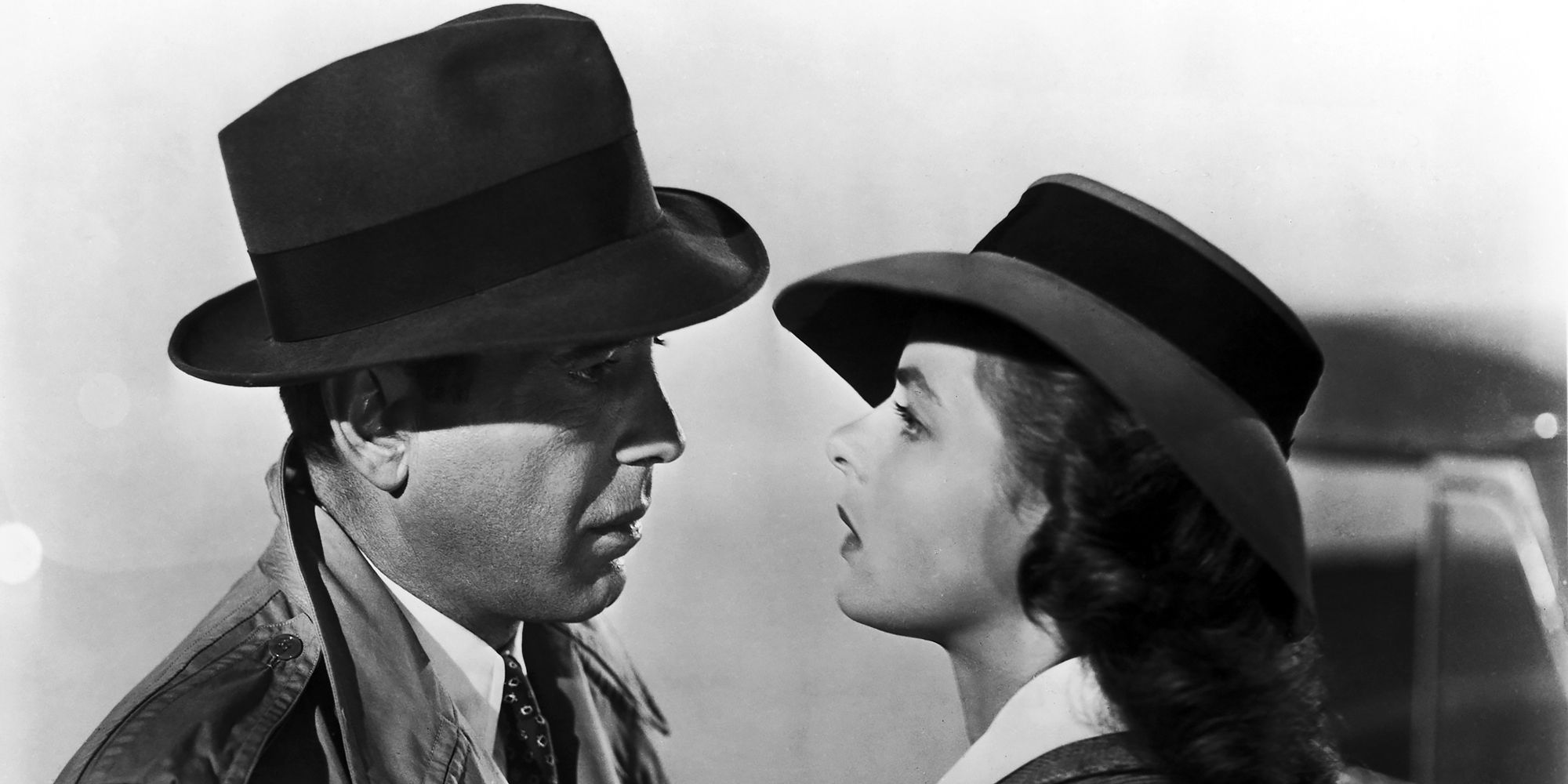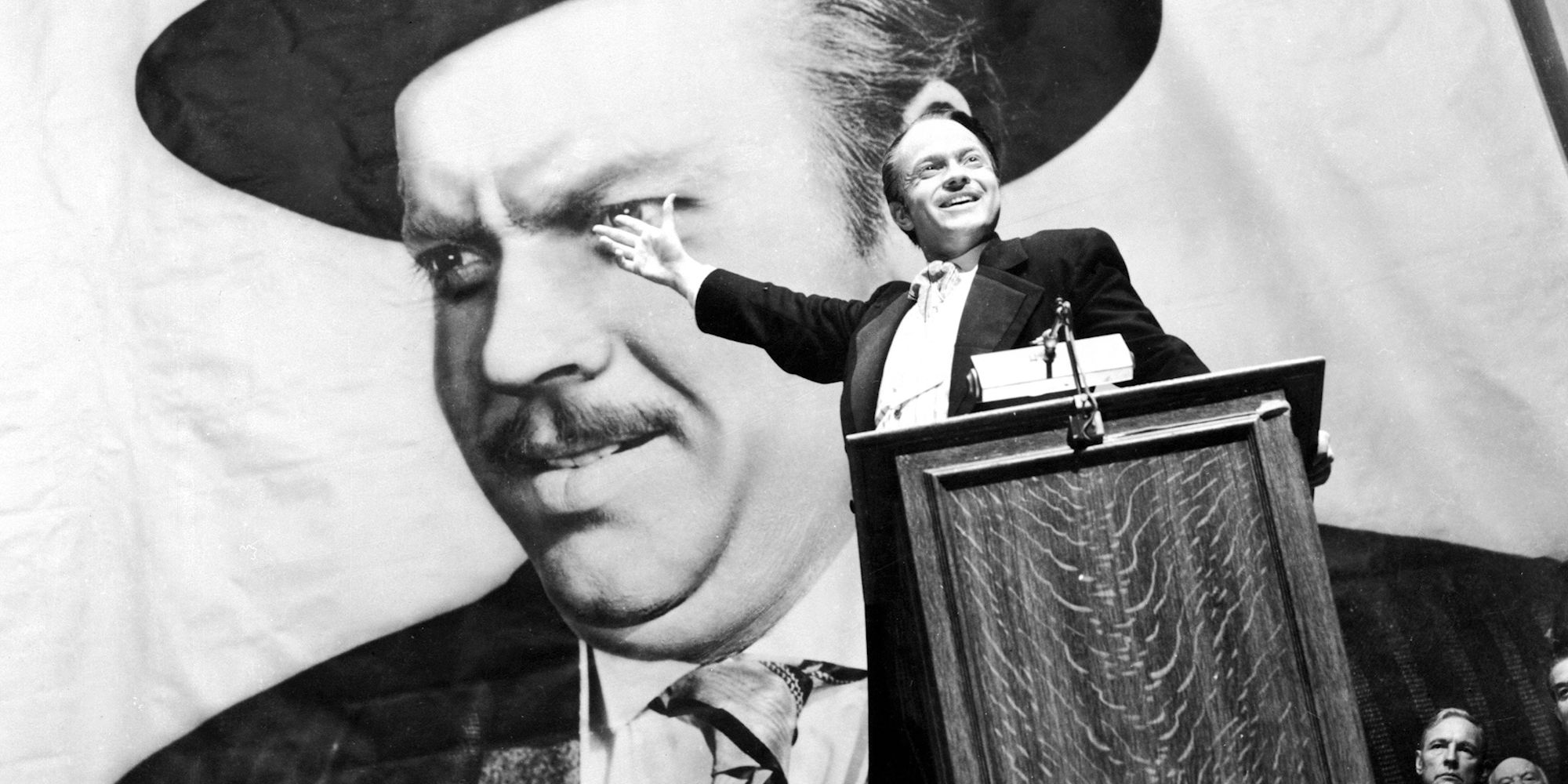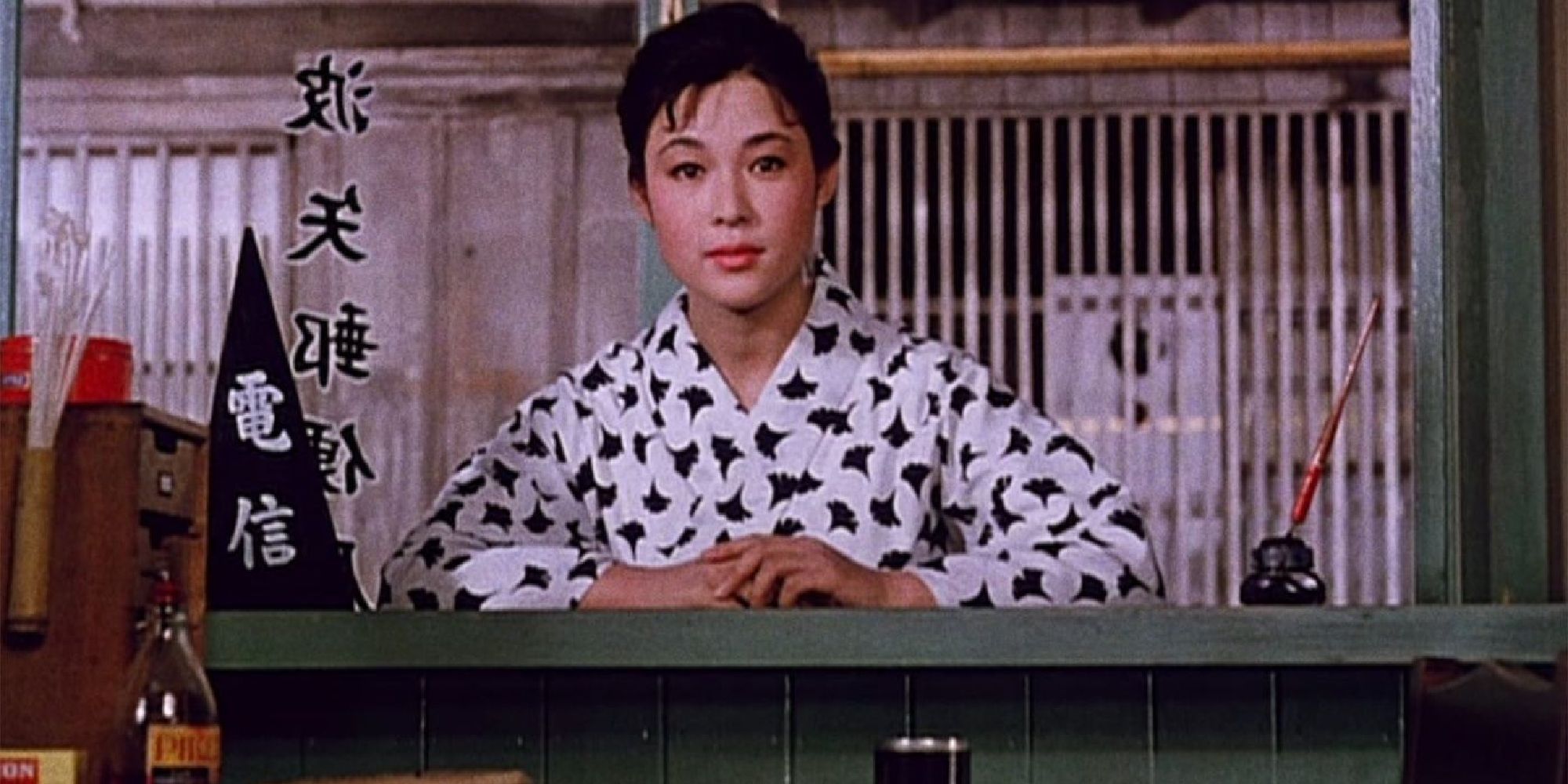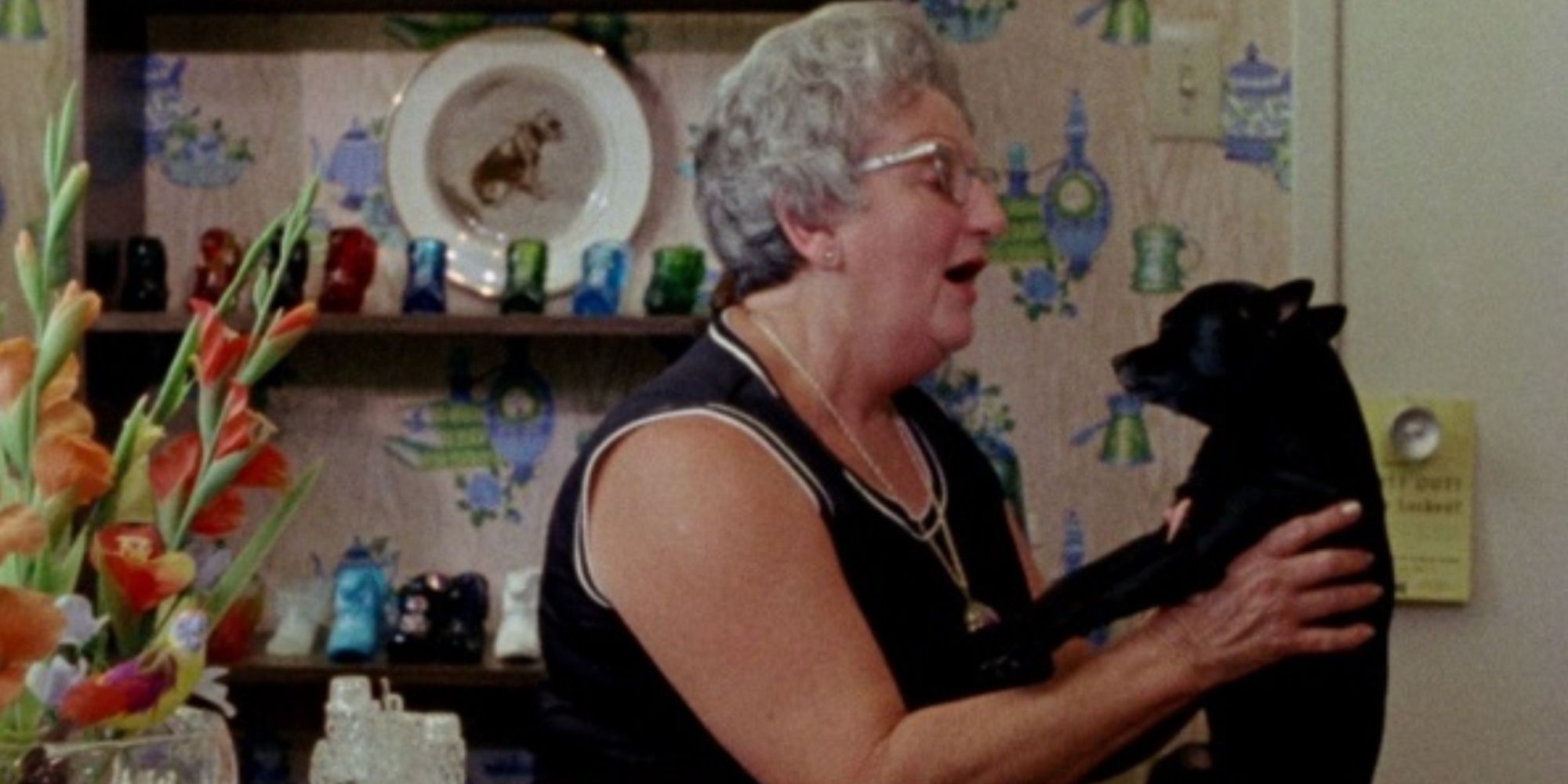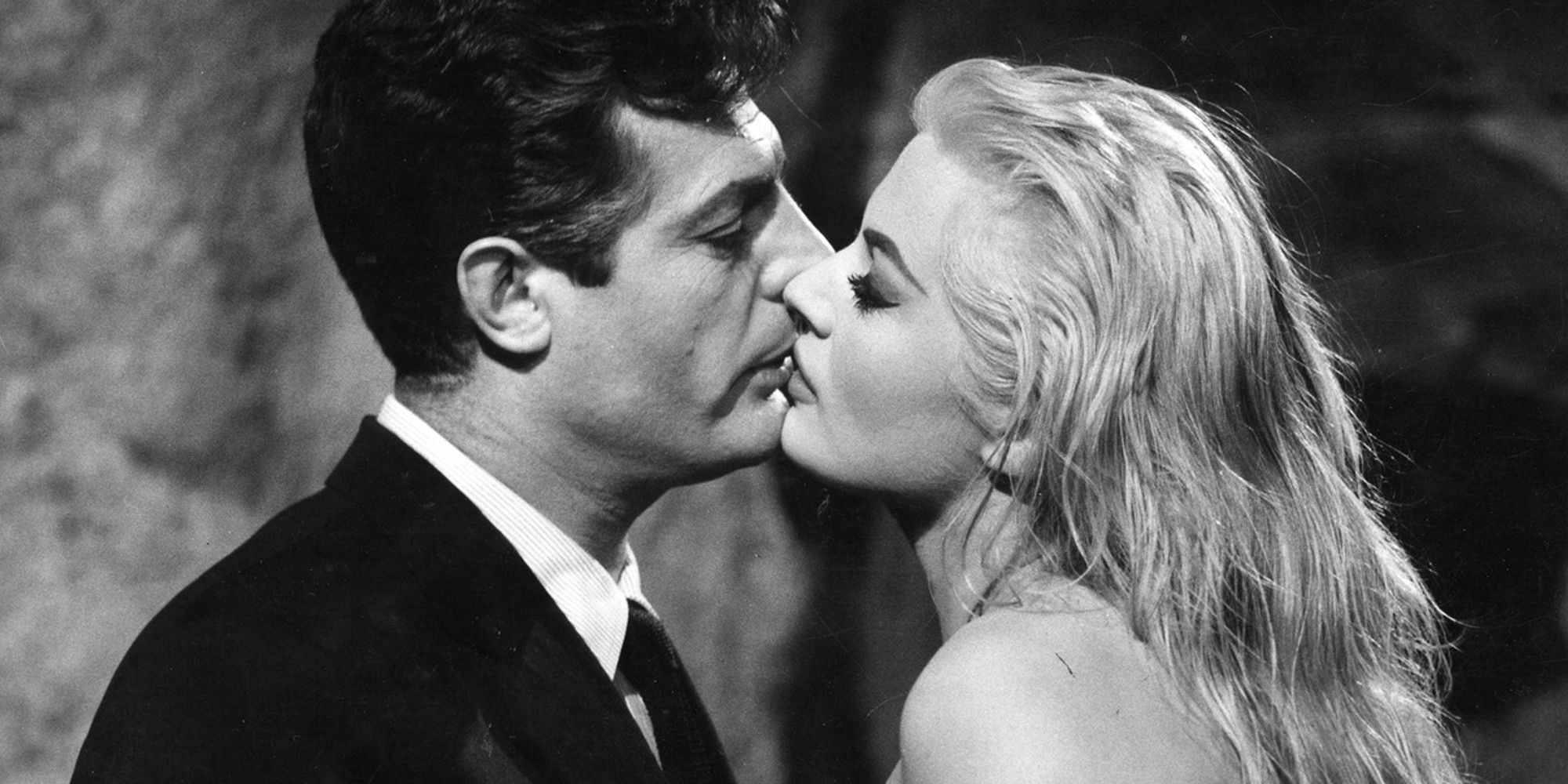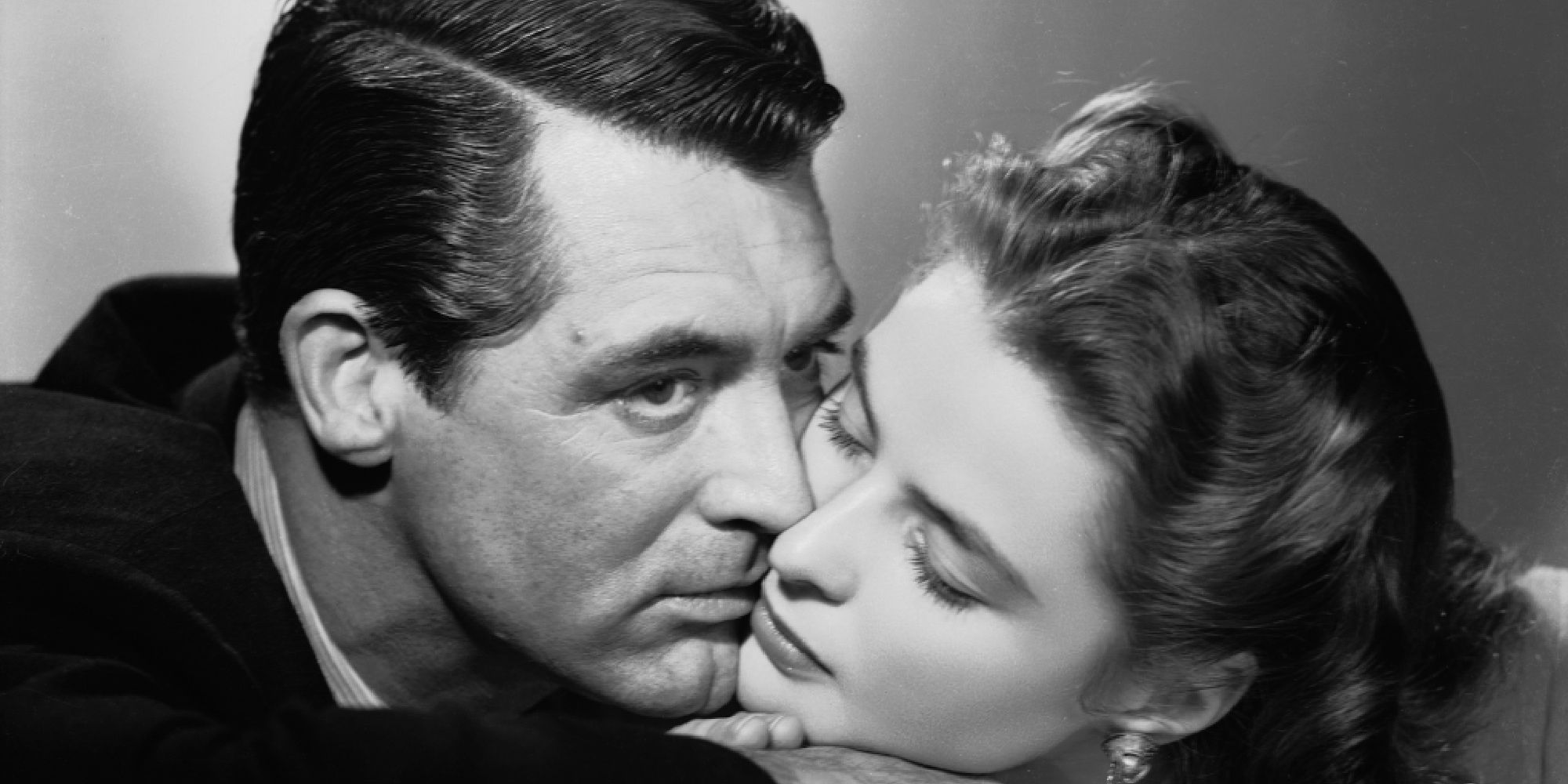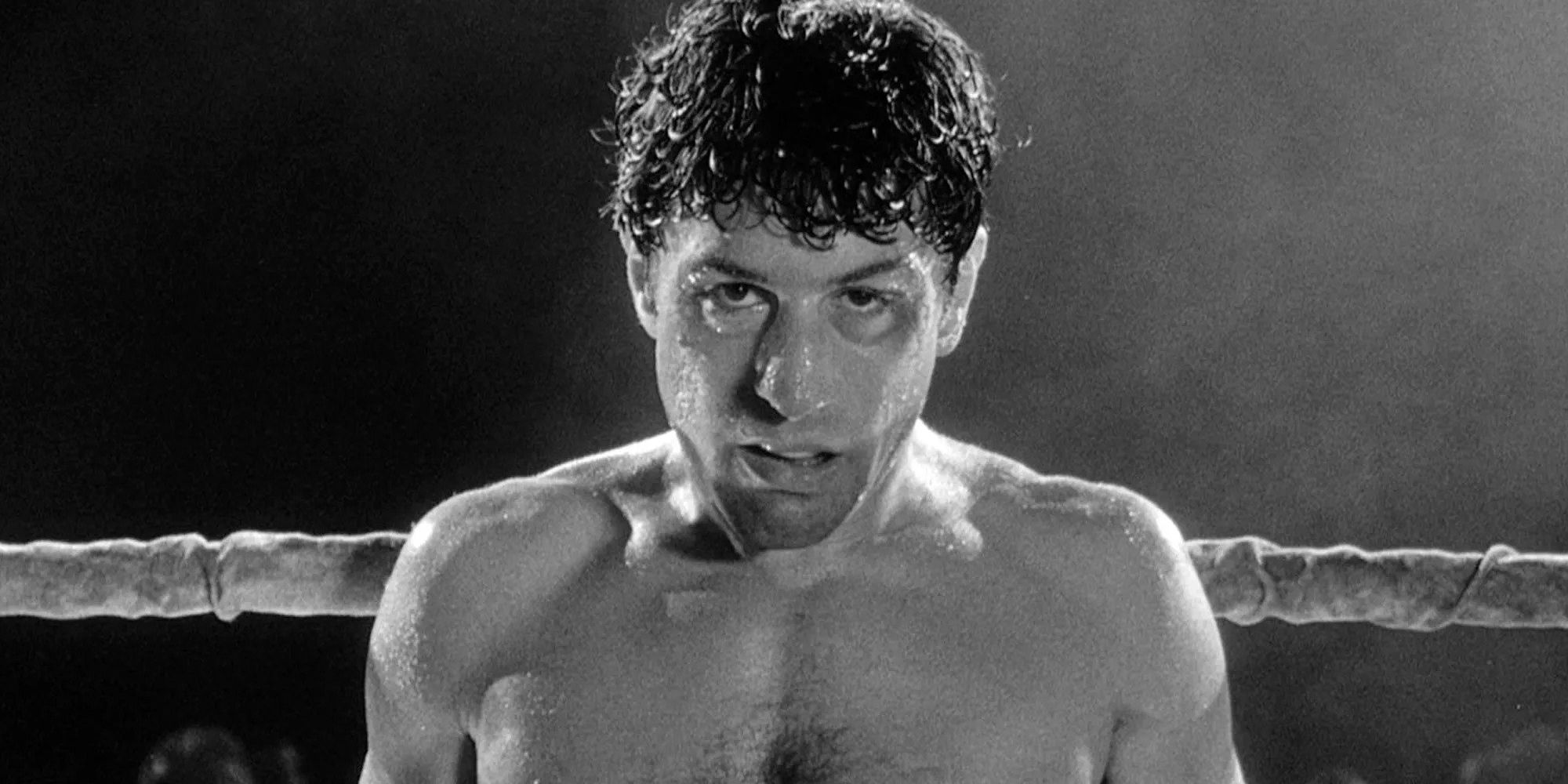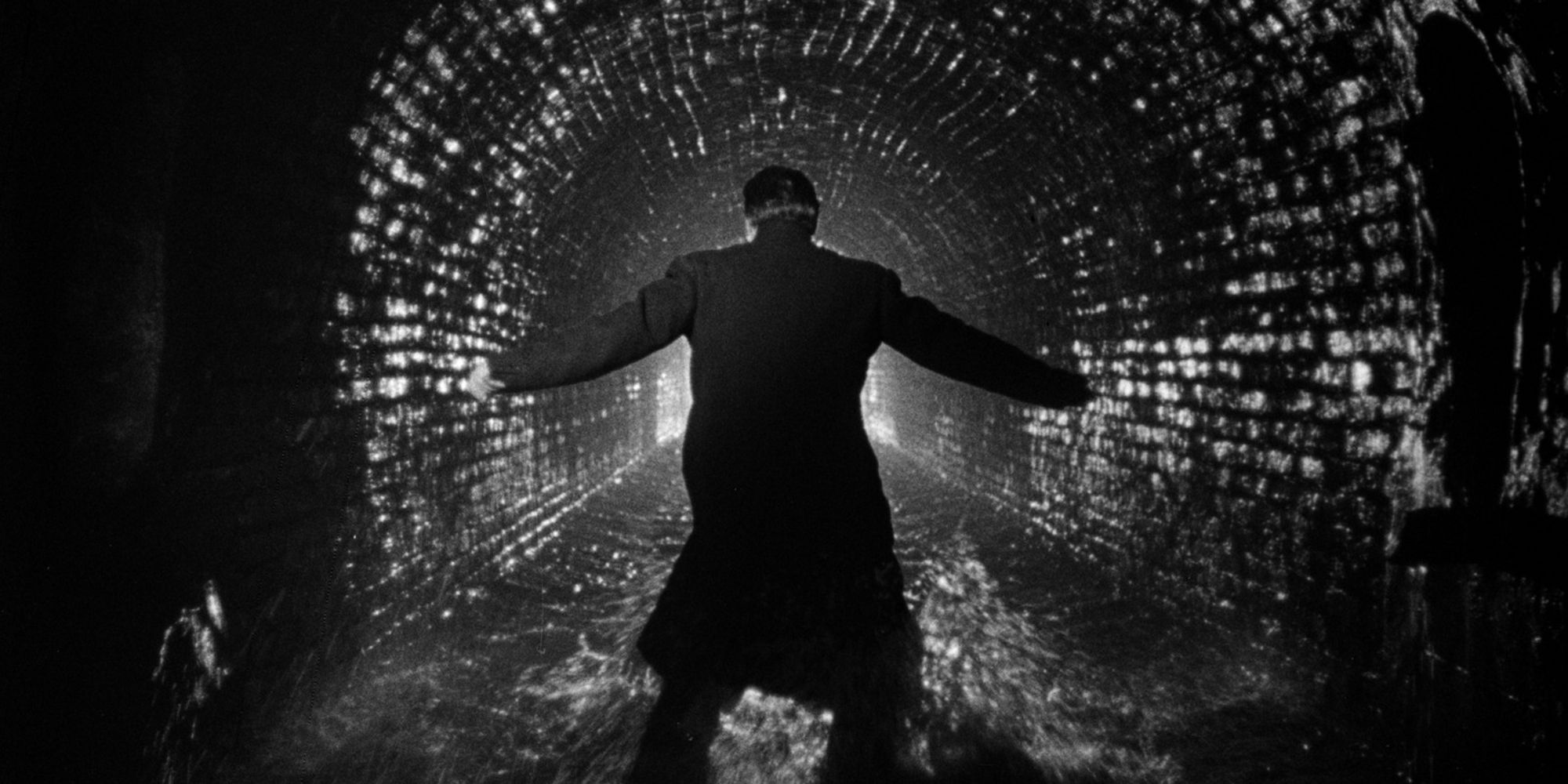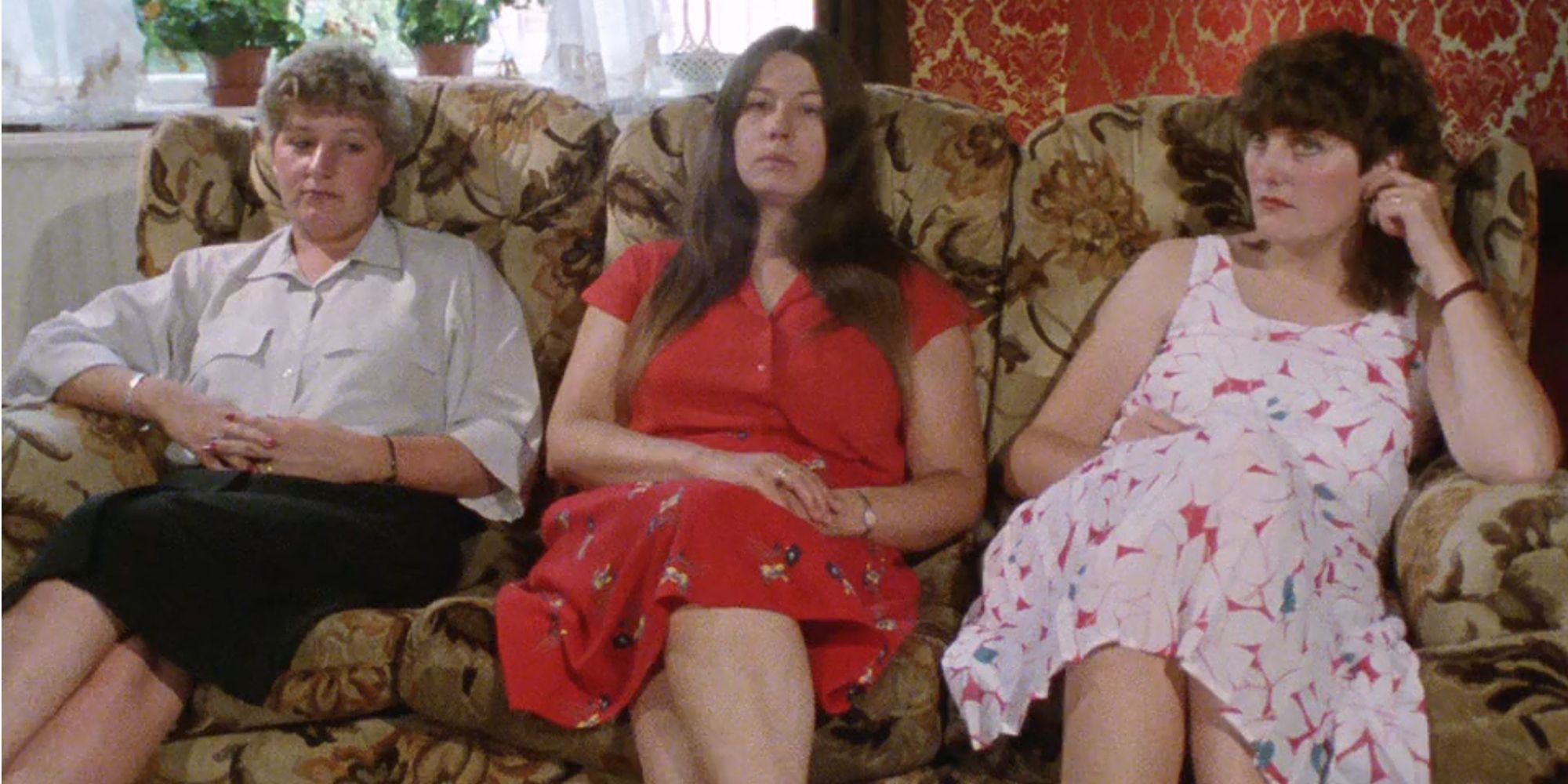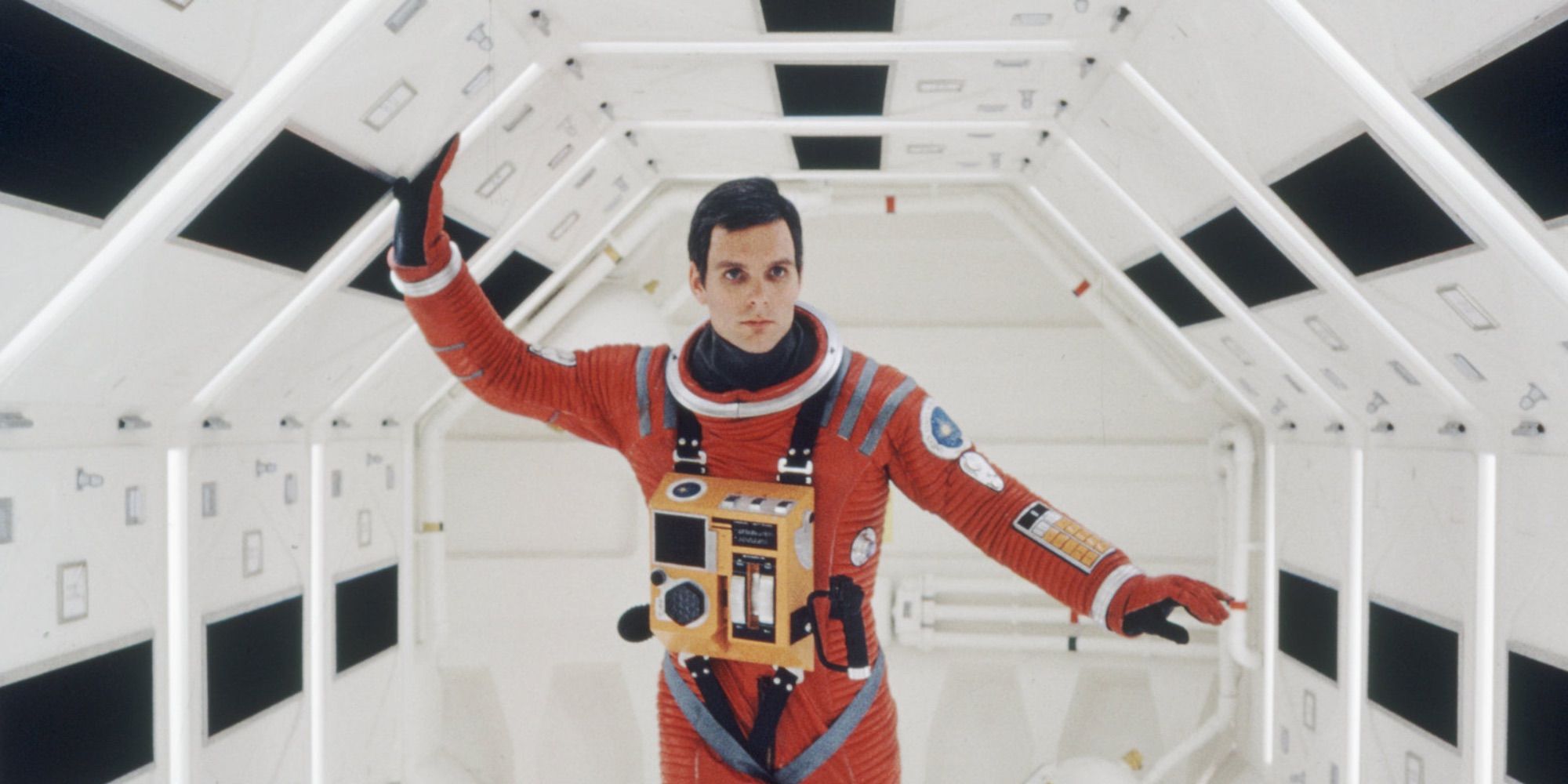Perhaps the most respected and well-known movie critic of all time, Roger Ebert is a key figure in cinema history. His widely read reviews were poignant and incisive yet sometimes divisive and ever so entertaining; often, his opinion was the one that could decide the fate of a movie.
In the days before the internet, audiences looked to the newspapers for his take on the latest films. That was the magic of Ebert: bringing film criticism to the mainstream. From 1967 until his death in 2013, Ebert wrote for The Chicago Sun-Times and became the first critic to receive a Pulitzer Prize for his film criticism. Now, Ebert's opinion matters just as much, or perhaps even more than it did during his heyday. These movies are the best, in Ebert's not-so-humble opinion, and any dedicated cinephile would add his top ten to their watchlist.
"If I must make a list of the Ten Greatest Films of All Time, my first vow is to make the list for myself, not for anybody else." - Roger Ebert.
1 'Casablanca' (1942)
Director: Michael Curtiz
An iconic movie on multiple levels, Casablanca features Humphrey Bogart and Ingrid Bergman as Rick Blaine and Ilsa Lund, a pair of former lovers reuniting in the Vichy-controlled city of Casablanca. Fighting their lingering feelings, Rick must help Ilsa's husband, a Czechoslovak resistance leader, escape so he can continue his fight against the Nazis during World War II.
Casablanca is not only a top-rated movie on Ebert's list but is currently number three on the American Film Institute's top 100 movies over 100 years. Ebert dotes upon the film, indicating, "Stylistically, the film is not so much brilliant as absolutely sound, rock-solid in its use of Hollywood studio craftsmanship." Casablanca earned its due as Best Picture in 1944 and has continued to be highly regarded by critics and cinephiles.
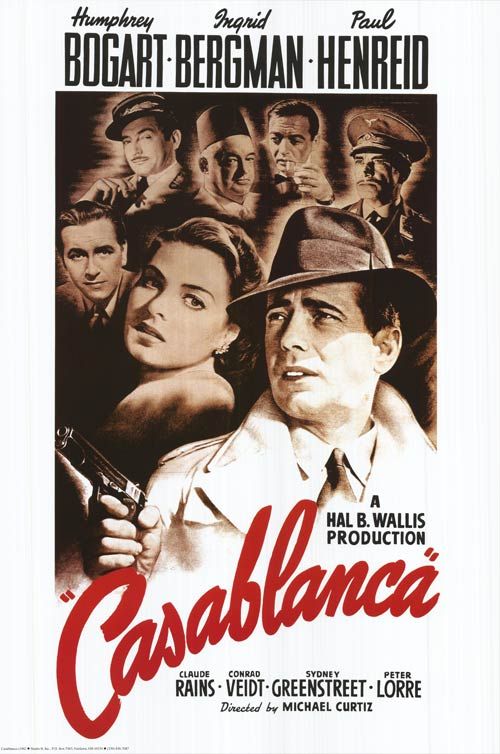
Casablanca
- Release Date
- January 23, 1942
- Cast
- Humphrey Bogart , Ingrid Bergman , Paul Henreid , Claude Rains , Conrad Veidt , Sydney Greenstreet
- Runtime
- 102 minutes
2 'Citizen Kane' (1941)
Director: Orson Welles
Citizen Kane is a movie that continues to age like fine wine, retaining its status as one of the best movies of all time, currently number one on AFI's list of the best American movies ever. Directed by Orson Welles, this movie tells the story of a group of reporters desperate to decode the final words of publishing tycoon Charles Foster Kane (Welles), infamously based on real-life magnate William Randolph Hearst.
In a wild original story of the Hollywood dream, Ebert wonderfully points out, "It is one of the miracles of cinema that in 1941 a first-time director; a cynical, hard-drinking writer; an innovative cinematographer, and a group of New York stage and radio actors were given the keys to a studio and total control, and made a masterpiece." Highly influential from nearly every technical and narrative perspective, Citizen Kane stands out as one of the greatest movies ever made, a timeless tale of all-consuming greed and the tragedy of the American Dream.
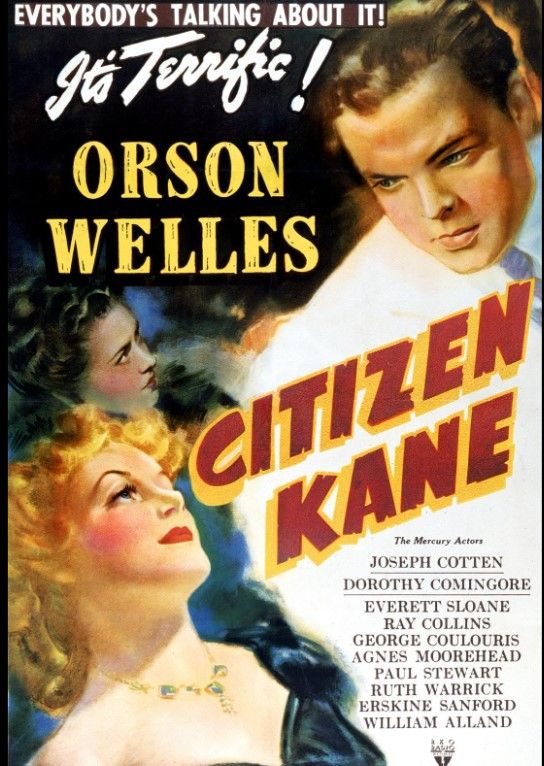
Citizen Kane
- Release Date
- April 17, 1941
- Director
- Orson Welles
- Cast
- Orson Welles , Joseph Cotten , Dorothy Comingore , Agnes Moorehead , Ruth Warrick , Ray Collins
- Runtime
- 119
3 'Floating Weeds' (1959)
Director: Yasujirō Ozu
An excellent international feature film, Floating Weeds flies mostly under the radar when it comes to mainstream attention. The 1959 drama tells the story of a man who returns to the small town where he left his son and attempts to make up for the missed years while the child remains under the assumption the man is his uncle.
Ebert recognized that many viewers had probably never seen or heard of the film or director Yasujirô Ozu. Speaking highly of this feature, Ebert said, "Ozu fashioned his style by himself and never changed it, and to see his films is to be inside a completely alternative cinematic language." Indeed, Floating Weeds is visually stunning, with highly contrasting colors painting a beautiful picture of what is, essentially, a tender tale of reconciliation and moving on.
4 'Gates of Heaven' (1978)
Director: Errol Morris
Referring to director Errol Morris, Ebert said, "He has made a film about life and death, pride and shame, deception and betrayal, and the stubborn quirkiness of human nature." A renowned documentarian, Morris' oeuvre explores knowledge itself, concerned as much with the people possessing it as it is with the highly specific nature of expertise. His ticket to mainstream recognition was Gates of Heaven, a documentary about a pet mortician and the animals he's buried in a California pet cemetery.
No matter if it's a documentary or a feature film, sharp, story-driven movies always caught Ebert's eye. Gates of Heaven is a curious piece of filmmaking, walking a fine line between satire and heartfelt honesty. The result is a film about human nature itself and the power of some unexplained, unbreakable bonds. While it took a different direction than other narratives reviewed by the legendary critic, Gates of Heaven speaks to pet owners and their experiences.
5 'La Dolce Vita' (1960)
Director: Federico Fellini
An Oscar-winning Italian masterpiece, La Dolce Vita is a romanticized tale of a week's worth of stories for a tabloid journalist living in Rome. It secured one golden statute for Best Costume Design, yielded three other nominations, and now stands as one of its country's greatest cinematic achievements. The film stars Marcello Mastroianni and Anita Ekberg and is directed by Federico Fellini.
Like any good film study, Ebert's review and praise encourage viewers to look beyond the surface popularity or scandal of the film's release and understand what it's trying to say. As he discussed rewatching the film almost once a decade, Ebert explained how his vantage point in life shifted his view of the film, concluding, "There may be no such thing as the sweet life. But it is necessary to find that out for yourself." Filled with iconic imagery and thought-provoking themes, La Dolce Vita is a timeless and riveting film about life itself, which will surely mean something different for every person, depending on where and, most importantly, when they watch it.
6 'Notorious' (1946)
Director: Alfred Hitchcock
Adding another iconic director to the greatest of all time, Notorious was Alfred Hitchcock's ticket to Ebert's heart. A drama starring Hollywood royalty Cary Grant and Ingrid Bergman, the movie follows T.R. Devlin, who recruits the daughter of a convicted German criminal, Alicia, to act as a spy. When she becomes involved with a Nazi hiding in Brazil, their dangerous scheme threatens to slip out of their hands.
Notorious is among Hitchcock's greatest movies, a sleek and stylish spy noir elevated by the electrifying chemistry between Grant and Bergman. Ebert's review revels in Hitchcock's ability "to pluck the strings of human emotion—to play the audience." Among Hitchcock's large, famous filmography, Notorious stands out as one of his most alluring and purely rewatchable efforts, a masterclass in filmmaking that excels at nearly every conceivable level.
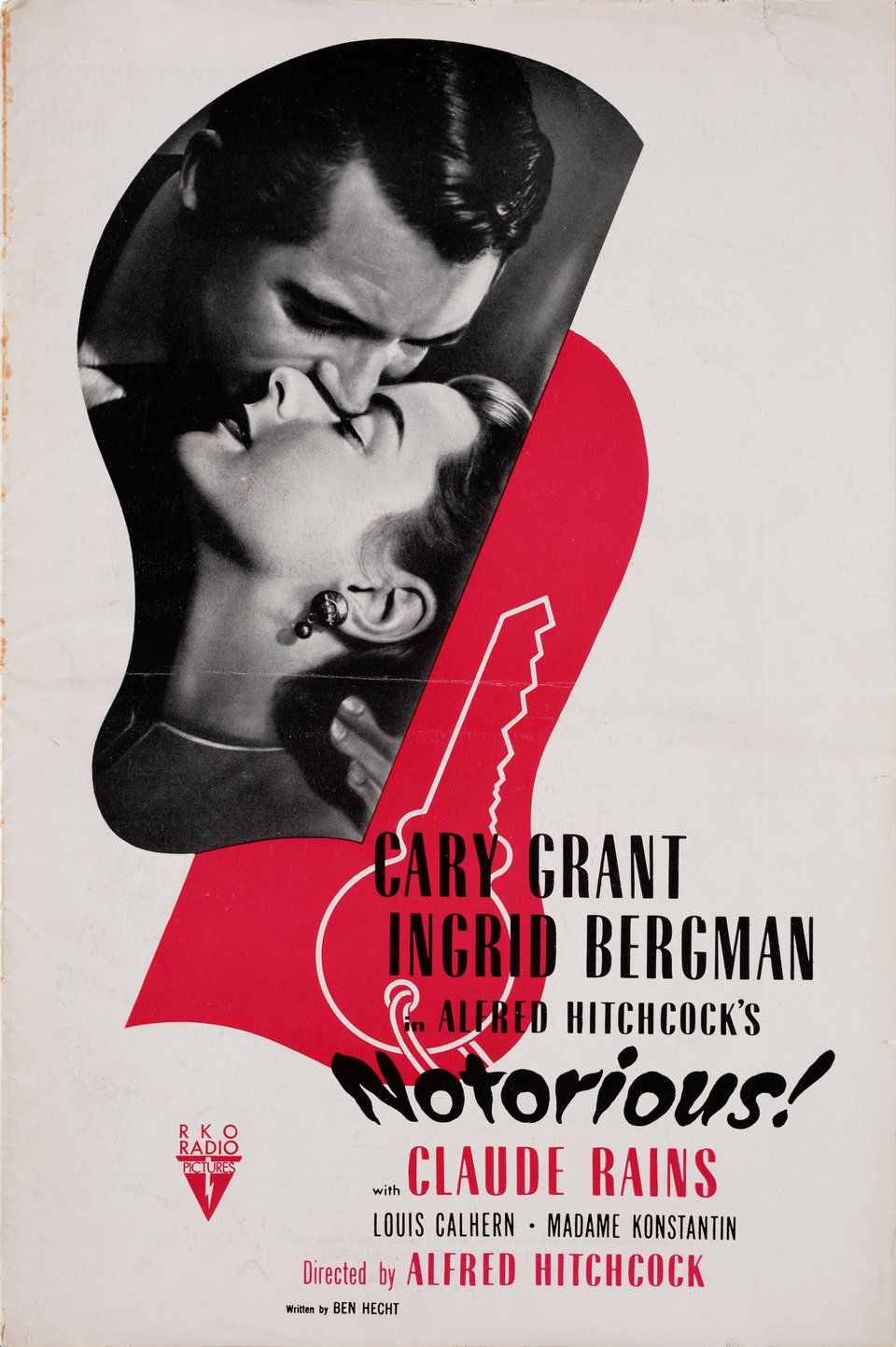
Notorious (1946)
- Release Date
- September 6, 1946
- Cast
- Cary Grant , Ingrid Bergman , Claude Rains , Leopoldine Konstantin , Louis Calhern
- Runtime
- 123 minutes
7 'Raging Bull' (1980)
Director: Martin Scorsese
The film that perhaps knocked Taxi Driver off Ebert's top ten list, Raging Bull is one of the best sports movies of all time and arguably the all-time best boxing picture. Starring as real-life boxer Jake La Motta, Robert De Niro portrays the middleweight champ's dominating, violent force inside the ring, which translated into a volatile and painful life outside of it.
Ebert commends the cinematic artwork led by director Martin Scorsese, from the black-and-white aesthetic choice to the overall production. An adaptation of La Motta's autobiography, Raging Bull earned eight Oscar nominations and two wins. It is now widely regarded as possibly Scorsese's finest, a grueling and emotionally violent portrayal of a complicated yet fascinating figure. Raging Bull is often a challenging watch, but De Niro's fierce, committed performance and Scorsese's assured direction make it a must-watch for any true cinephile.
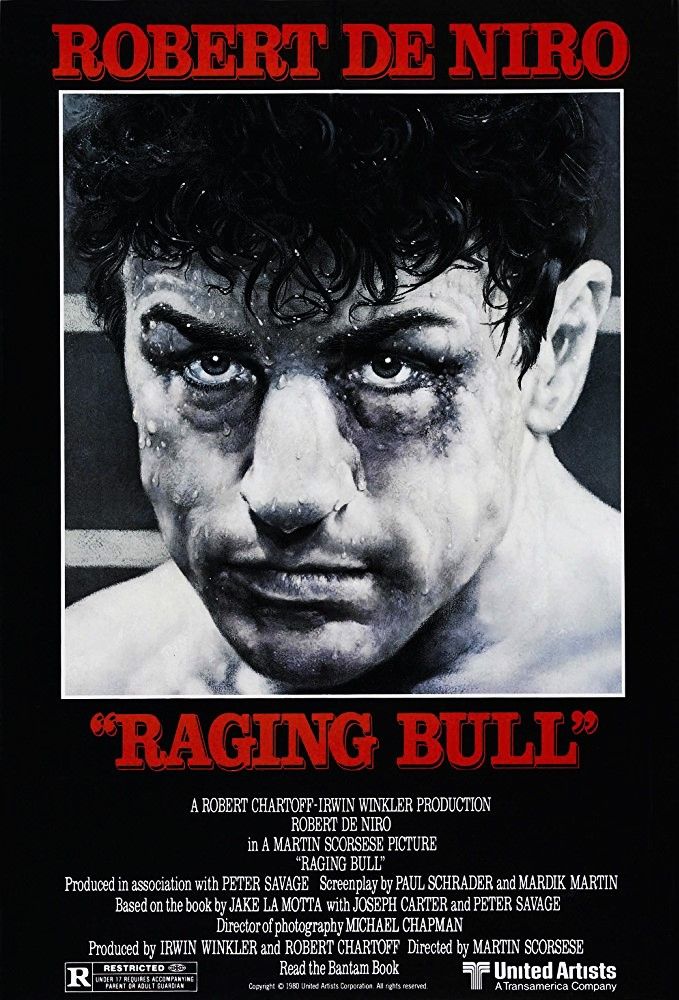
Raging Bull
Directed by Martin Scorsese, Raging Bull is a 1980 sports drama based on the rise and fall of real-life boxer Jake LaMotta as he strives for success while dealing with his inner demons and his violent temper. Robert De Niro stars as the middleweight champion, with Joe Pesci, Cathy Moriarty, and Nicholas Colasanto in supporting roles.
- Release Date
- November 14, 1980
- Cast
- Robert De Niro , Cathy Moriarty , Joe Pesci , Frank Vincent , Nicholas Colasanto , Theresa Saldana
- Runtime
- 129 minutes
8 'The Third Man' (1949)
Director: Carol Reed
One of IMDb's top-rated films, The Third Man is also within Ebert's choices. A gripping mystery and visually distinctive triumph, this film-noir tells the story of Holly Martins (Joseph Cotten) in postwar Vienna as he investigates the death of his friend Harry Lime (Orson Welles).
This cinematic masterpiece captured not only the heart of Ebert but new audiences for decades. In his review, Ebert details the physical cinematic experience he encountered when he saw the movie, capturing the importance of how the movie-going experience is still so important no matter where you are in the world. "This movie is on the altar of my love for the cinema," he said. Famous for its atmospheric and striking cinematography, The Third Man might just be the ultimate film noir and an engaging mystery that keeps enthralling nearly a century after its release.
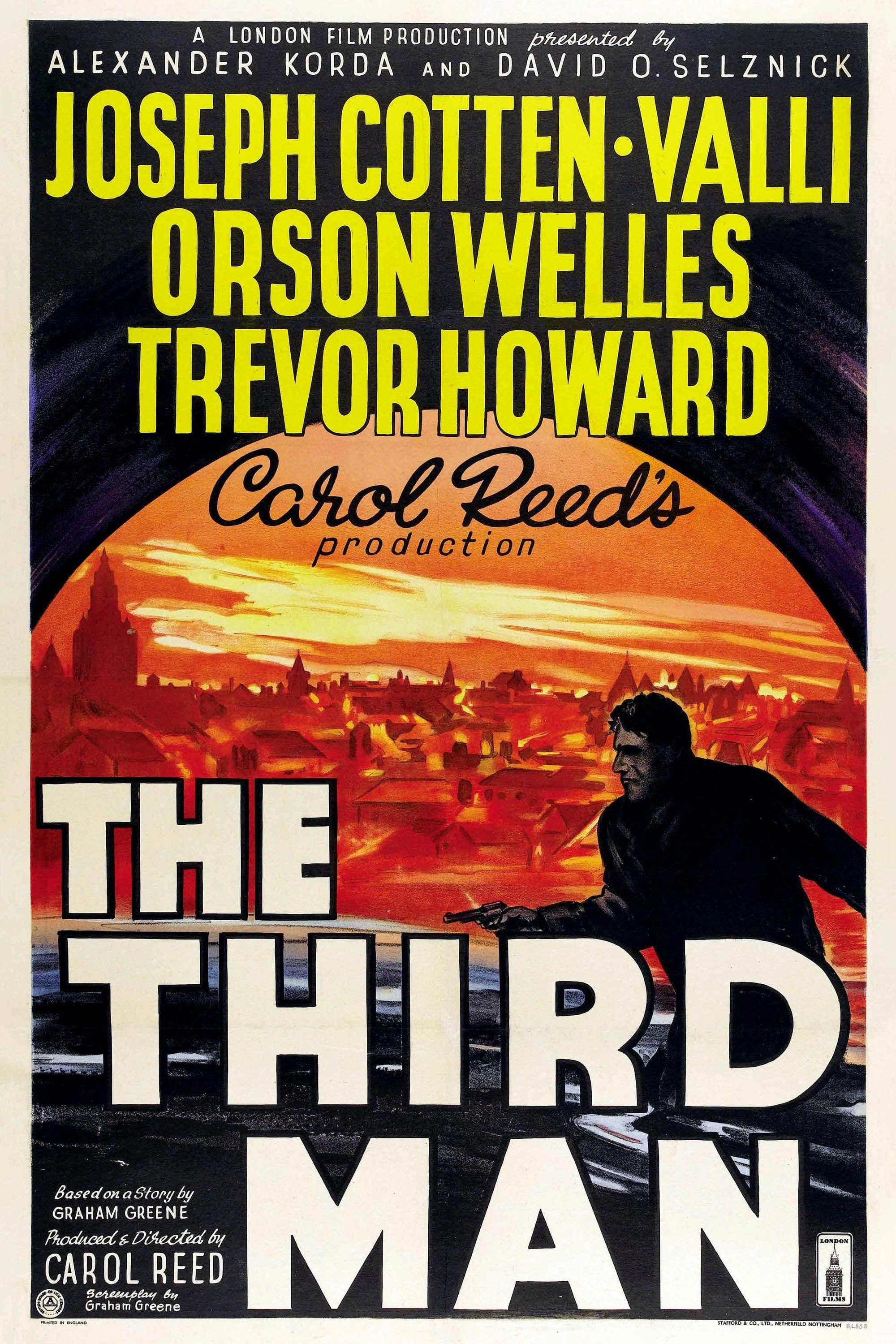
The Third Man
- Release Date
- February 1, 1950
- Cast
- Orson Welles , Joseph Cotten , Alida Valli , Trevor Howard , Paul Hörbiger
- Runtime
- 93 Minutes
9 '28 Up' (1984)
Director: Michael Apted
Another documentary audiences may not be familiar with, 28 Up is a biographical piece in which director Michael Apted interviews the same group of British adults over several seven-year wait periods. With over two hours in runtime, it's a longer documentary but worth the watch to see the evolution of these subjects over almost 30 years.
28 Up is a prime example of how filmmaking can bridge time, according to his testimonial on the film. Apted's experiment was like nothing audiences or Ebert had seen at the time; indeed, it remains fascinating even today, a truly groundbreaking piece of filmmaking that challenges notions and expectations. Few films have the scope of 28 Up, a refreshing documentary that delivers something new with each rewatch.
10 '2001: A Space Odyssey' (1968)
Director: Stanley Kubrick
Iconic, top-rated, foundational...all descriptors that apply to 2001: A Space Odyssey. Directed by Stanley Kubrick, this sci-fi film takes audiences through space and time as a spaceship, operated by two men and an AI computer named H.A.L 9000, is sent to Jupiter to understand a mysterious artifact.
The Oscar winner for Best Visual Effects, 2001: A Space Odyssey set the bar for where technology was headed in cinematic storytelling. Ebert referred to the film as "a landmark of non-narrative, poetic filmmaking, in which the connections were made by images, not dialog or plot." It's truly difficult to put 2001's profound impact into words. Instead, the film should speak for itself, and it truly does; it's evocative, profoundly eerie, and thought-provoking, the very definition of a cinematic masterpiece.
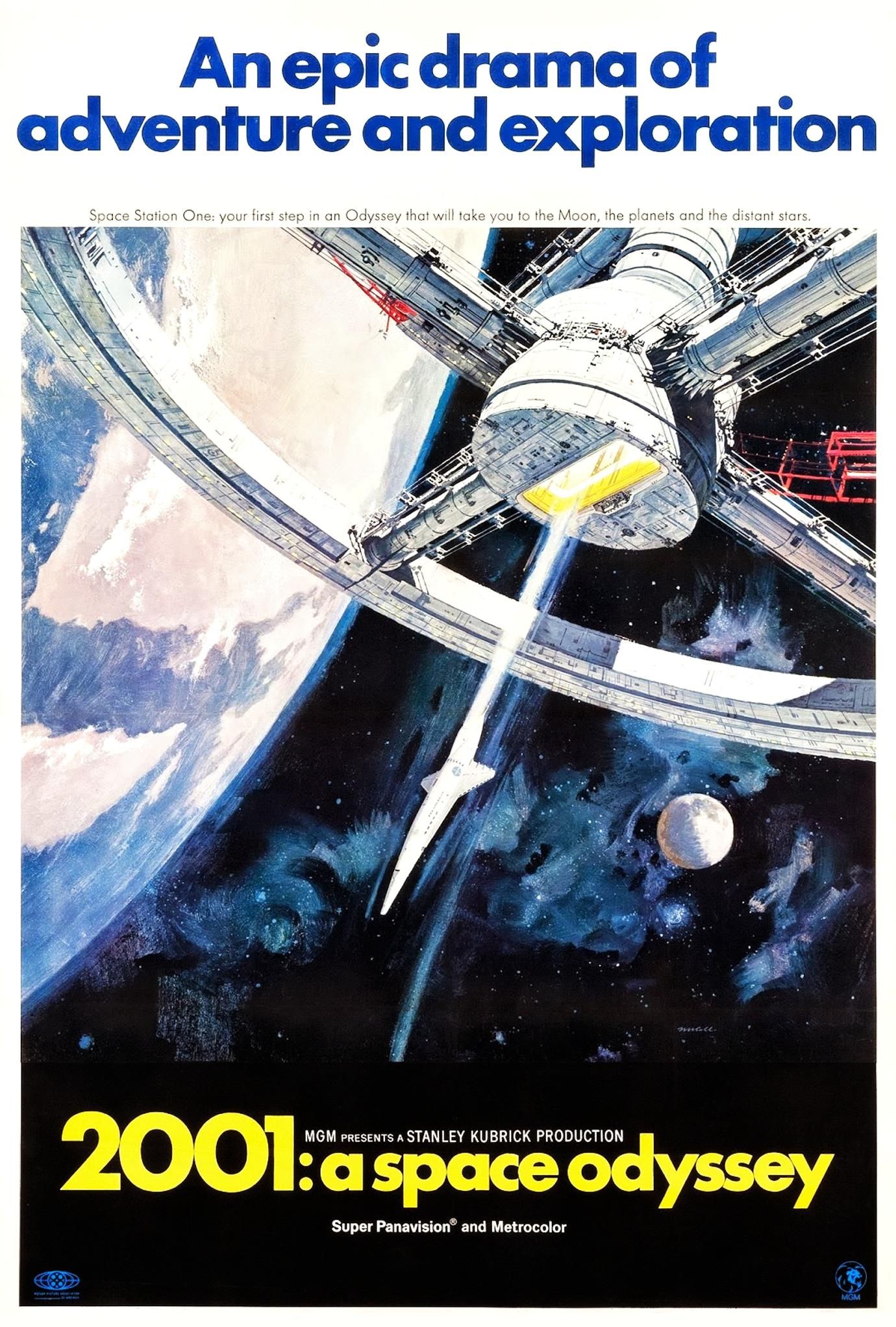
2001: A Space Odyssey
- Release Date
- April 2, 1968
- Cast
- Keir Dullea , Gary Lockwood , William Sylvester , Daniel Richter , Leonard Rossiter , Margaret Tyzack
- Runtime
- 141


